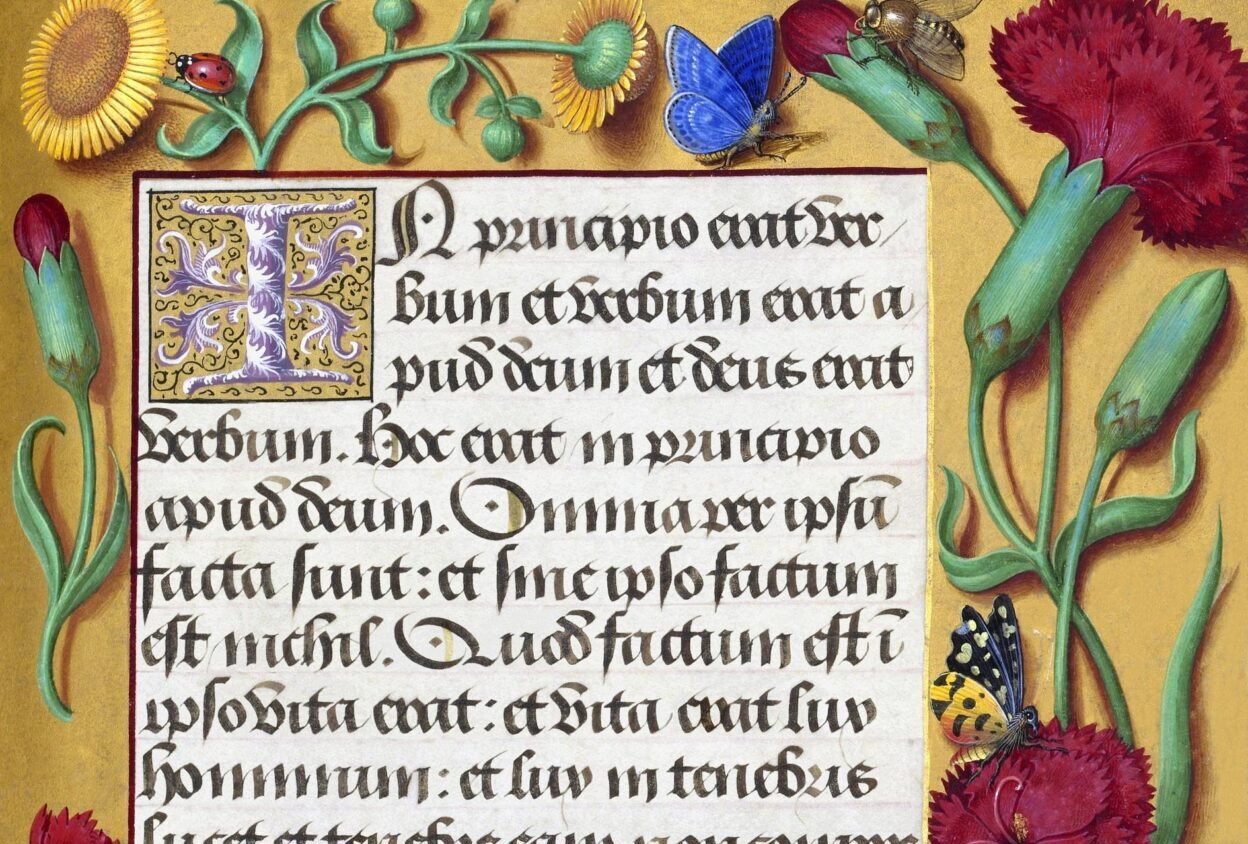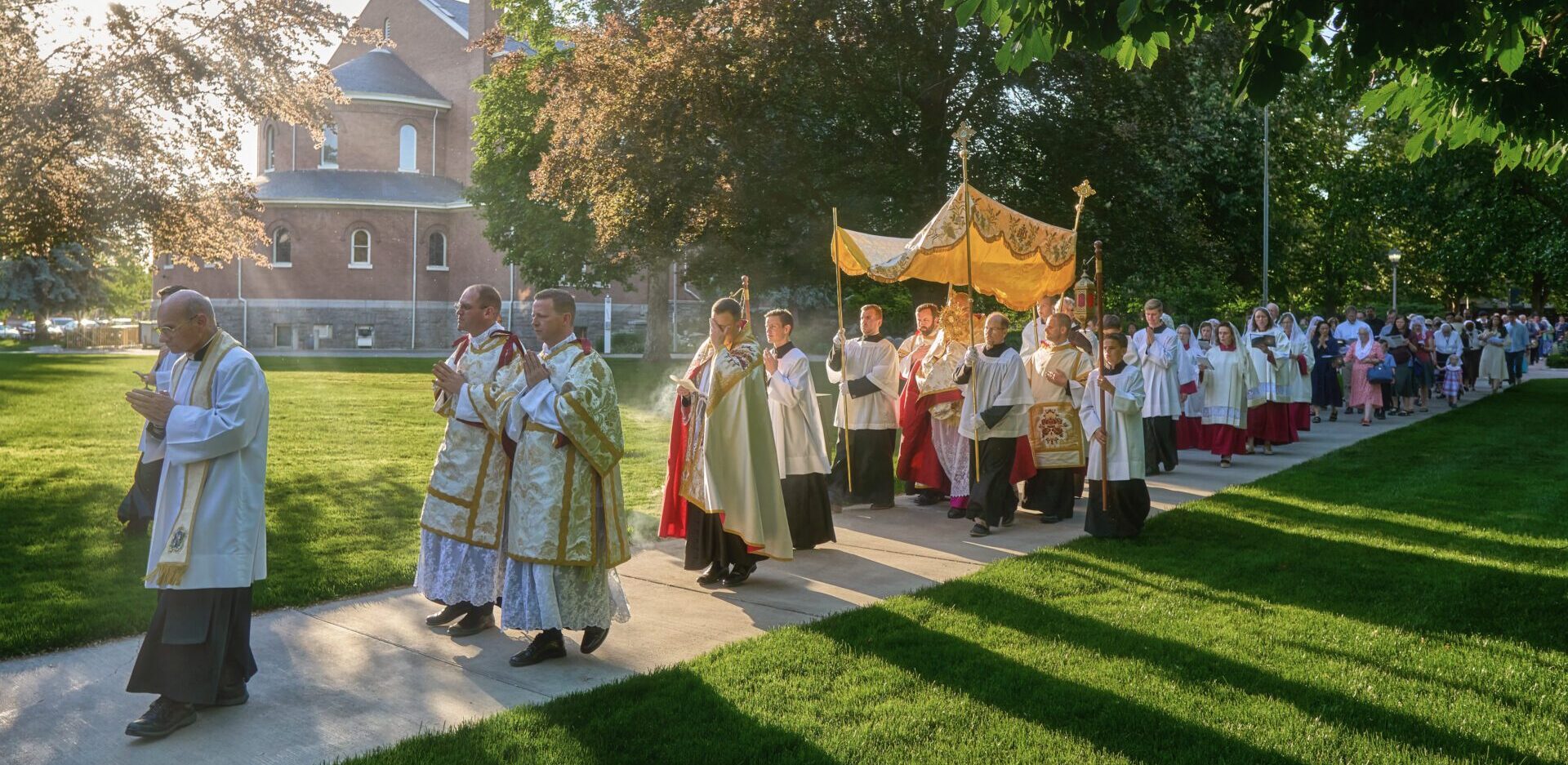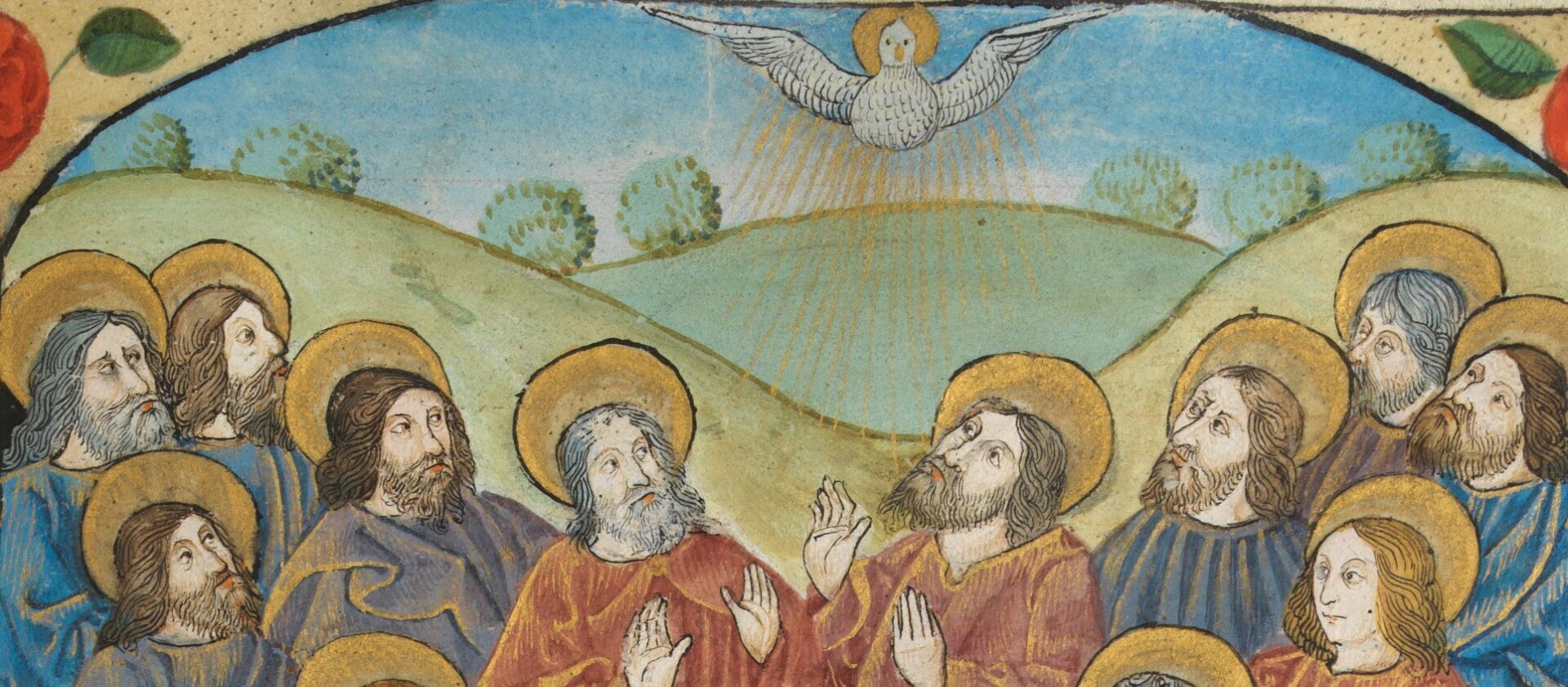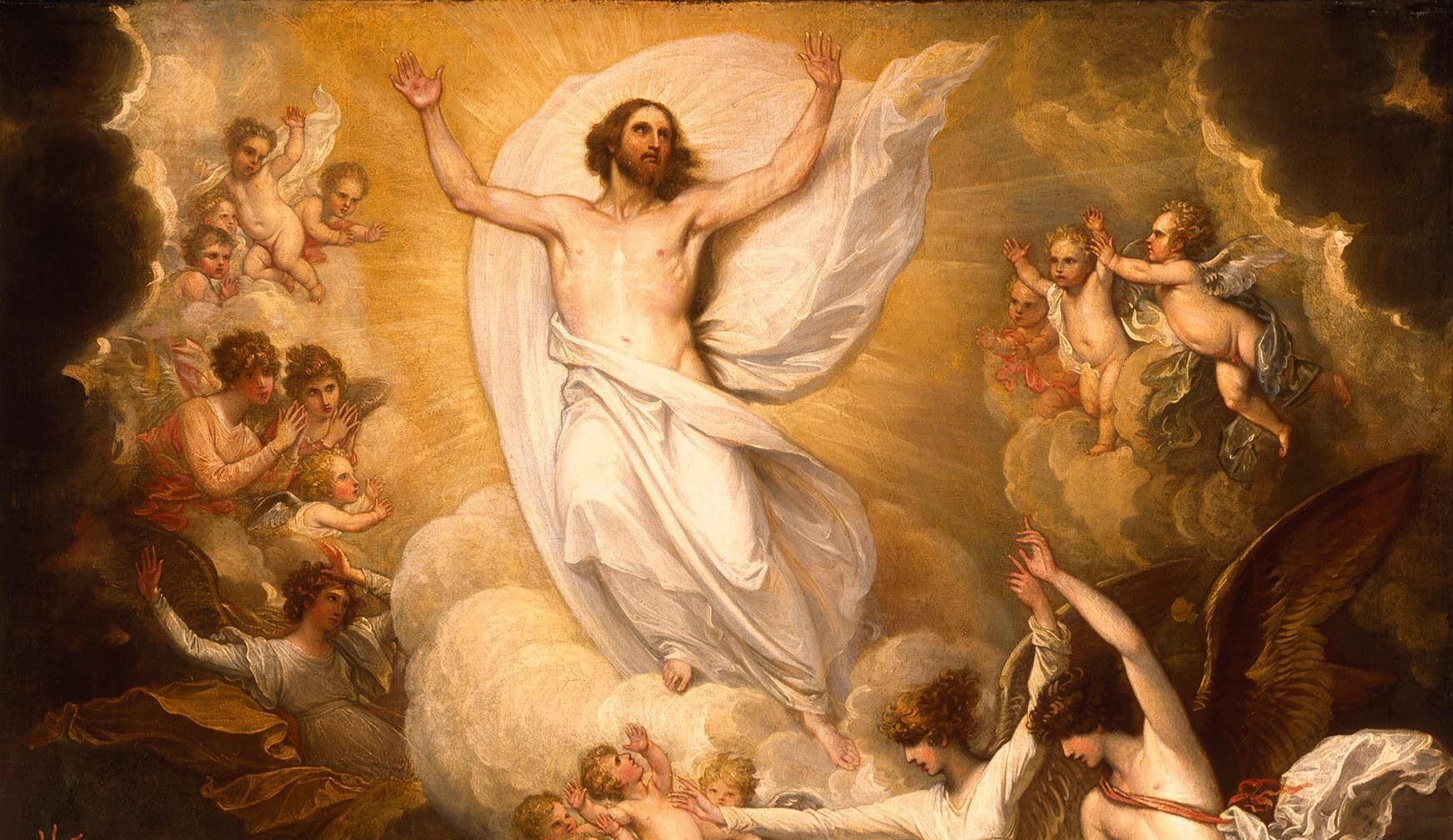A garage sale, as someone said, is a relationship between a seller who wants to get rid of things he does not need and a buyer who soon discovers that he does need them either. I once attended an event that had the appearance of a garage sale except for two important and startling differences. Everything was free and the items were things for which both the seller and buyer did have need. On this unusual occasion, a Catholic church was getting rid of sundry items that were associated with pre-Vatican II days. They were spread across the lawn for collectors to peruse and, if they liked them, take home. My eyes fell upon a beautifully designed wooden tablet, colorful and expertly lacquered, on which was inscribed, in Latin, the Last Gospel from St. John. It bore the title: Initium Sancti Evangelii secundum Joannem. It is now one of my prized possessions and hangs on a wall in our apartment as a reminder of the profound significance of its content.
“In principio erat Verbum, et Verbum erat apud Deum, et Deus erat Verbum” (“In the beginning was the Word, and the Word was with God, and the Word was God”). These majestic words initiate the Prologue of the Gospel of St. John (John 1:14) also known as the “Last Gospel” at Mass. They are first and last inasmuch as they are the opening of the Gospel of John and were recited by the priest at the end of Mass prior to the reforms instituted by Paul VI n 1969. Altogether, the Prologue is a magnificent poem expressing a luminous truth.
The phrase, “In the Beginning,” contrasts with the same expression that appears in Genesis. They are different in meaning, however. In the Prologue, it refers to the absolute beginning, prior to anything that was made or created. In this way it refers to God as eternal. The Genesis reference is to the beginning of creation. “Let there be light,” the beginning of the world, is preceded by God who is everlasting.
The notion of God as The Word may require some explanation. In Greek, The Word is translated as Logos, which conveys the concept of reason more clearly than The Word. How does it make sense that The Word of Logos can become flesh? An analogy from the Latin language may be of some help. Ratio in Latin means “reason.” But when reason is given a material quality by being placed in the mouth, it is prefixed by the letter “o.” Thus, oratio, refers to speech or an oration.
When the priest came to the words, Et Verbum caro factum est (and The Word was made flesh), he and participants would genuflect. The Word is Christ who dwelt among us (habitavit in nobis). The Greek verb that St. John uses originally means “to pitch one’s tent” or to live in a place. This resonates well with “tabernacle” which has several scriptural references.
The reading of the Last Gospel at the end of Mass dates back to medieval times. It was originally said as a private devotion. But it became a general practice with the Missale Romanum of Pius V in 1570. In 1964, the document Inter Oecumenici issued norms to implement the Second Vatican Council’s “Constitution on the Sacred Liturgy.” The Council had sought to simplify the liturgy. Consequently, the Last Gospel was eliminated in that year. “Simplifying,” one must remember, is entirely different from “shortening.” At a slow cadence, it takes 90 seconds to recite the Last Gospel. However, according to my own recollections, the priest would typically rush through the Last Gospel, thereby giving the impression that it was something tacked on as an afterthought to the Mass. This lack of respect for it may have contributed to its removal. Nonetheless, it could have been recited more respectfully (and perhaps in the vernacular).
It is interesting to note that students who take a course on the mystery of the Trinity at Wyoming Catholic College in Lander, WY, are required to memorize the Prologue of St. John and then write it out word for word for the final exam. They may write it out in English or Latin. They receive extra credit if they write it out in Greek.
If the Last Gospel of St. John is not reinstated in the Mass, and it is most unlikely that it will be, nonetheless, it should be given more prominence. Framed copies of this sublime poem can be displayed in the church in appropriate places. Leaflets bearing its content can be made available to the faithful. It can be discussed from the altar within homilies, during seminars, and at conventions. It is simply too important to remain hidden. Its references to how people fail to comprehend the light and disregard the truth are most timely for a world that continues to dwell in darkness.
Meanwhile, I can be happy with my beautifully inscribed copy of the Prologue, content with the realization that what may have been thrown away merely changed hands.
Dr. Donald DeMarco is Prof. Emeritus/St. Jerome’s University, Adjunct Prof./Holy Apostles College & Seminary. He is a regular columnist for the St. Austin Review. His latest five books include How To Navigate through Life; Apostles of the Culture of Life; Reflections on the Covid-10 Pandemic: A Search for Understanding; The War Against Civility (all posted on amazon.com), and A Moral Compass for a World in Confusion.
Image Source: AB/rawpixel



